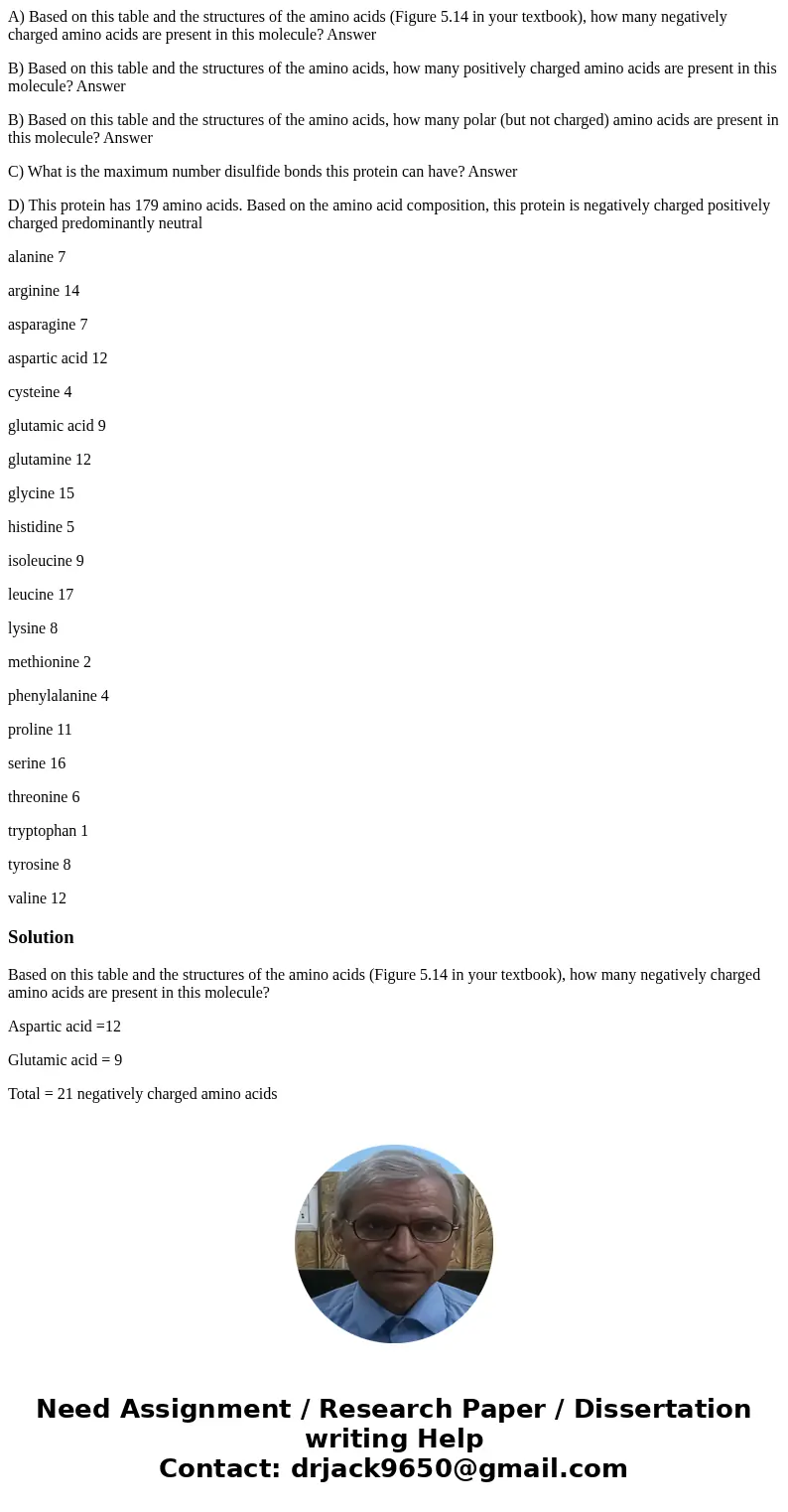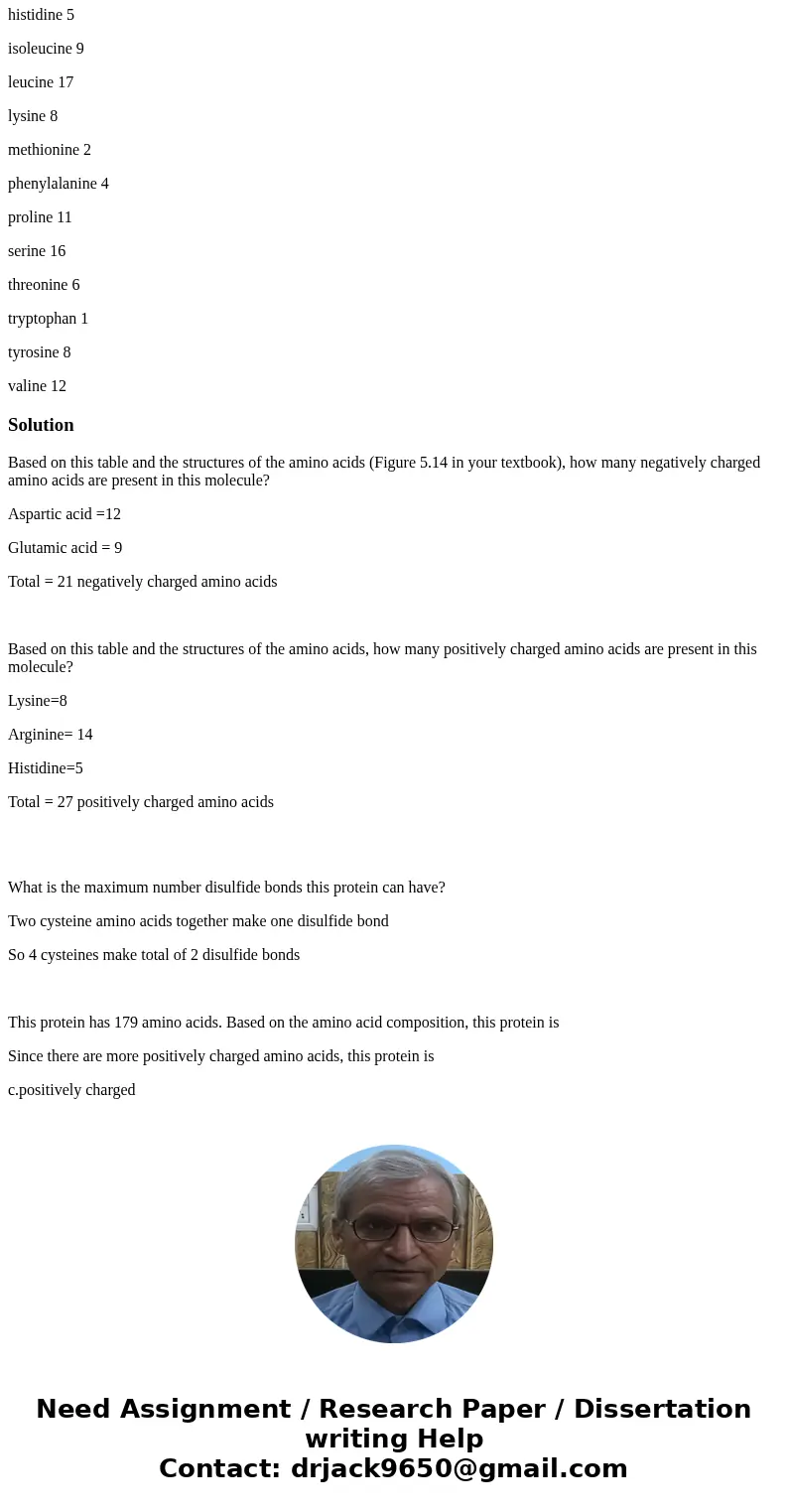A Based on this table and the structures of the amino acids
A) Based on this table and the structures of the amino acids (Figure 5.14 in your textbook), how many negatively charged amino acids are present in this molecule? Answer
B) Based on this table and the structures of the amino acids, how many positively charged amino acids are present in this molecule? Answer
B) Based on this table and the structures of the amino acids, how many polar (but not charged) amino acids are present in this molecule? Answer
C) What is the maximum number disulfide bonds this protein can have? Answer
D) This protein has 179 amino acids. Based on the amino acid composition, this protein is negatively charged positively charged predominantly neutral
alanine 7
arginine 14
asparagine 7
aspartic acid 12
cysteine 4
glutamic acid 9
glutamine 12
glycine 15
histidine 5
isoleucine 9
leucine 17
lysine 8
methionine 2
phenylalanine 4
proline 11
serine 16
threonine 6
tryptophan 1
tyrosine 8
valine 12
Solution
Based on this table and the structures of the amino acids (Figure 5.14 in your textbook), how many negatively charged amino acids are present in this molecule?
Aspartic acid =12
Glutamic acid = 9
Total = 21 negatively charged amino acids
Based on this table and the structures of the amino acids, how many positively charged amino acids are present in this molecule?
Lysine=8
Arginine= 14
Histidine=5
Total = 27 positively charged amino acids
What is the maximum number disulfide bonds this protein can have?
Two cysteine amino acids together make one disulfide bond
So 4 cysteines make total of 2 disulfide bonds
This protein has 179 amino acids. Based on the amino acid composition, this protein is
Since there are more positively charged amino acids, this protein is
c.positively charged


 Homework Sourse
Homework Sourse